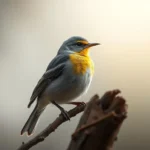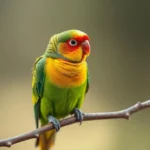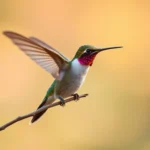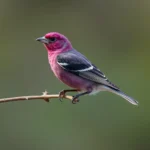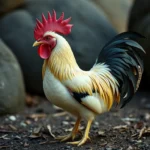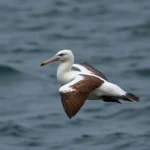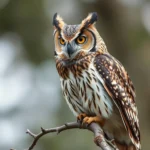Madagascar Jacana: A Symbol of Resilience and Adaptability
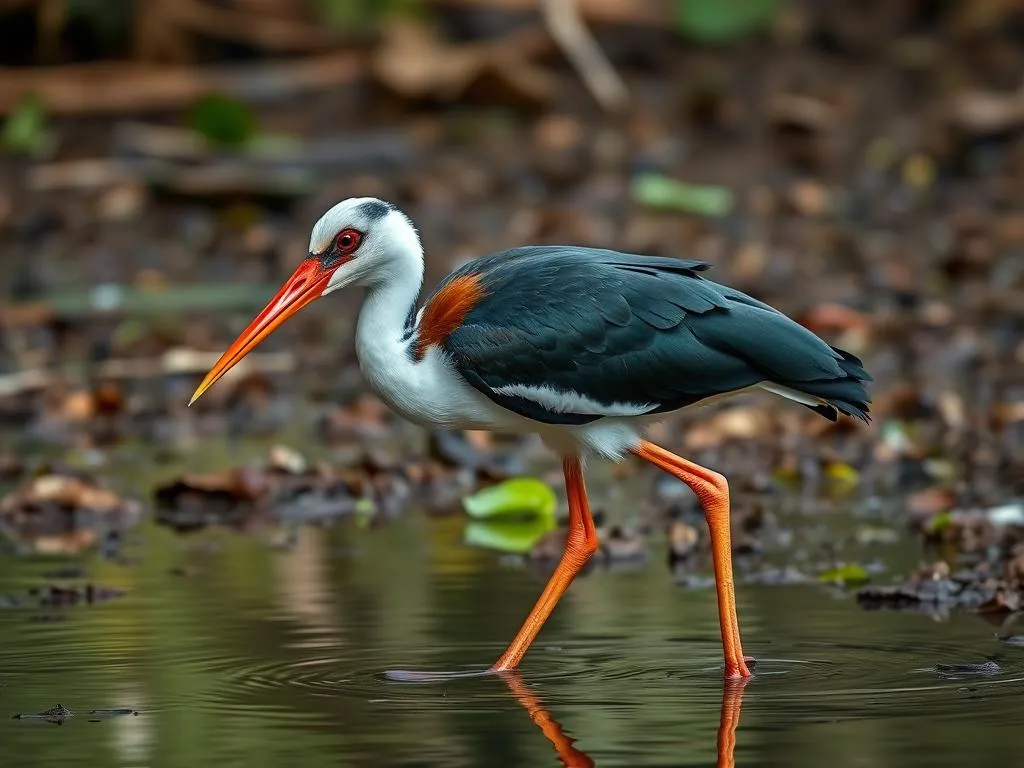
Disclaimer: Some images on this website are AI-generated artworks and may not accurately represent real animals.
The Madagascar Jacana is more than just a striking bird; it embodies the essence of resilience and adaptability in its daily life. This unique species, native to the wetlands of Madagascar, presents an array of fascinating traits that not only contribute to its survival but also symbolize deeper meanings related to personal growth and overcoming challenges. In this blog post, we will explore the characteristics, behaviors, and symbolism of the Madagascar Jacana, delving into its cultural significance and modern interpretations.
Understanding the Madagascar Jacana
Overview of the Species
The Madagascar Jacana (Actophilornis albinucha) is a medium-sized wading bird that thrives in the lush wetlands of Madagascar. With its distinctive long toes, which allow it to walk effortlessly on floating vegetation, the Jacana has adapted beautifully to its aquatic habitat.
| Physical Characteristic | Description |
|---|---|
| Size | Approximately 30-35 cm in length |
| Weight | 200-300 grams |
| Plumage | Dark brown body with striking white and yellow markings |
| Bill | Short and pointed, suitable for foraging |
| Feet | Long toes for walking on water |
The Jacana’s habitat primarily consists of freshwater marshes, lakes, and rice paddies, where it forages for insects and plant matter. Its unique adaptations not only facilitate movement across water but also enhance its survival in a challenging environment.
Behavioral Traits
The Madagascar Jacana exhibits intriguing social behaviors and mating habits. These birds are known for their polyandrous mating system, where females may mate with multiple males, who then take on the primary role of incubating eggs and caring for the young. This unusual social structure allows for a more diverse gene pool and increases the survival chances of the offspring.
In terms of feeding habits, the Jacana primarily consumes small invertebrates and plant material. It skillfully navigates its environment, using its long toes to probe through aquatic vegetation and catch its prey. This adaptability is key to its survival in the variable conditions of its ecosystem, where food sources may fluctuate.
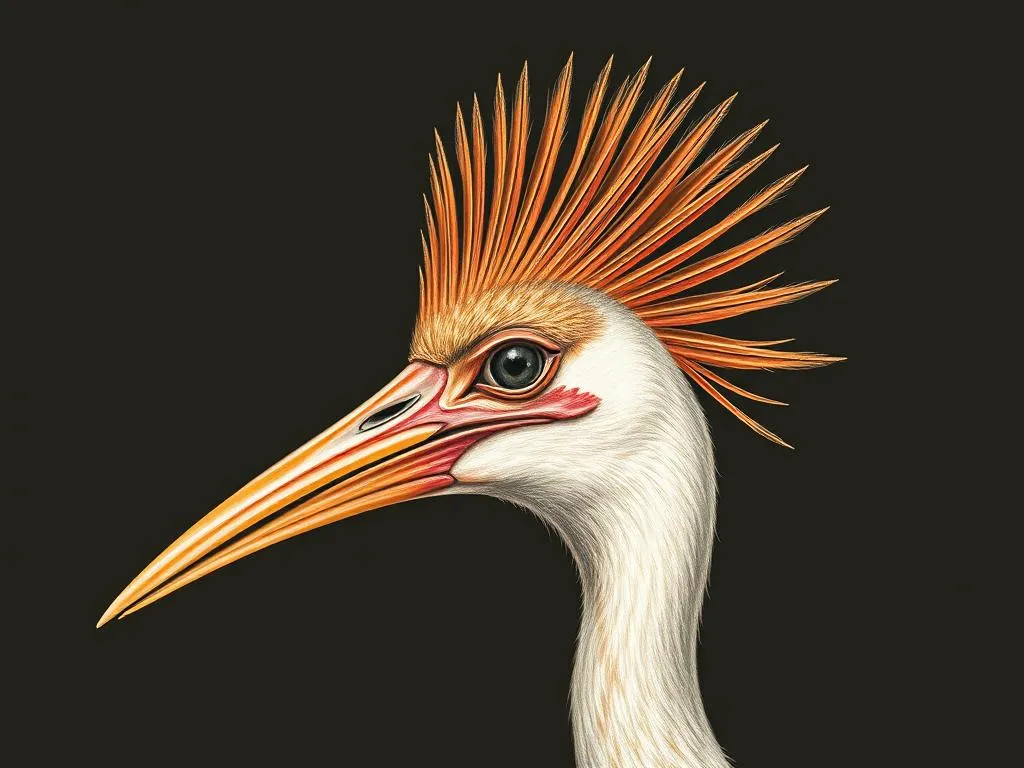
Symbolism and Spiritual Meaning
Cultural Significance
In many cultures, the Madagascar Jacana holds a significant place in local folklore and traditions. The bird is often seen as a symbol of harmony between land and water, reflecting the delicate balance of nature. Its ability to thrive in diverse environments resonates deeply with local communities, who view the Jacana as an emblem of resilience in the face of adversity.
The Jacana’s role in the ecosystem, particularly in controlling insect populations and maintaining the health of wetland habitats, further enhances its symbolic connection to balance. It serves as a reminder of the interconnectedness of all living beings and the importance of preserving natural ecosystems for future generations.
Themes of Resilience and Adaptability
The characteristics of the Madagascar Jacana embody themes of resilience and adaptability. Just as the Jacana skillfully navigates its aquatic environment, individuals can draw inspiration from this bird to navigate their own life challenges. The Jacana’s unique adaptations remind us that overcoming obstacles often requires flexibility and the ability to thrive in dynamic situations.
This symbolism can be particularly relevant for those facing personal growth or transitions. The Jacana encourages us to embrace change and to find strength in our ability to adapt, much like the bird does in its ever-changing habitat.
Madagascar Jacana in Dreams
Common Interpretations
Dreaming of a Madagascar Jacana can hold profound meanings. This bird often symbolizes adaptability, emotional fluidity, and the ability to navigate through life’s challenges. The presence of water in dreams, much like the Jacana’s habitat, can represent emotions and the subconscious mind.
| Dream Element | Symbolic Meaning |
|---|---|
| Madagascar Jacana | Adaptability and resilience |
| Water | Emotions and the subconscious |
| Floating plants | Opportunities and growth |
| Movement | Change and life’s transitions |
When a Jacana appears in dreams, it may be a call to embrace change and to acknowledge the fluid nature of life. This dream could signify that it’s time to adapt to new circumstances or to let go of rigid ways of thinking.
Personal Reflection and Growth
The symbolism of the Madagascar Jacana in dreams encourages personal reflection and growth. For those experiencing emotional turmoil or significant life transitions, seeing a Jacana can be a comforting reminder to remain adaptable and resilient.
The Jacana’s ability to thrive in various environments serves as a powerful metaphor for personal challenges. It encourages individuals to explore their emotional states, recognize their strengths, and embrace the journey of self-discovery. Just as the Jacana navigates the waters with grace, so too can we navigate the complexities of our lives.
Modern Interpretations
Symbol in Contemporary Culture
In contemporary culture, the Madagascar Jacana has found its way into various forms of art, literature, and popular media. Artists often depict the Jacana’s vibrant plumage and unique behavior, celebrating its beauty and the rich symbolism it represents.
Moreover, the Jacana has become a focal point in conservation efforts, raising awareness about the importance of preserving wetland ecosystems and the species that inhabit them. As environmental awareness grows, the Jacana symbolizes the need for balance and harmony between human activities and nature.
Connection to Personal Identity
The Jacana also serves as a source of inspiration for individuals seeking to embrace their unique paths in life. Much like the bird’s ability to walk on water, people are encouraged to become “water walkers” in their personal or professional lives. This metaphor emphasizes the importance of fluidity, adaptability, and courage in pursuing one’s goals.
The Jacana’s resilience encourages individuals to trust in their abilities to navigate challenges and to find their footing in uncertain situations. It reminds us that, regardless of the obstacles we face, we have the power to create our own paths and thrive.
Key Takeaways
The Madagascar Jacana represents a wealth of symbolic meanings that resonate deeply with personal growth and self-discovery. Here are some key takeaways:
- Resilience: The Jacana exemplifies the strength to overcome adversity and thrive in challenging environments.
- Adaptability: Its unique adaptations highlight the importance of flexibility in navigating life’s changes.
- Balance: The Jacana serves as a reminder of the interconnectedness of all living beings and the need for harmony with nature.
- Personal Growth: The bird’s symbolism encourages individuals to embrace change and trust in their ability to navigate life’s challenges.
- Cultural Significance: The Jacana’s representation in folklore and traditions underscores its role as a symbol of hope and resilience in local communities.
Conclusion
In summary, the Madagascar Jacana is much more than just a captivating bird. It stands as a symbol of resilience and adaptability, inspiring us to navigate the waters of our own lives with grace and courage. By connecting with the Jacana’s symbolism, we are reminded of the beauty of nature and the lessons it offers in overcoming challenges and embracing change.
As we look to the Madagascar Jacana, let us draw inspiration from its journey through the wetlands, encouraging us to find strength in our unique paths and to foster resilience in the face of life’s uncertainties. Embracing the wisdom of nature can provide invaluable guidance as we navigate our own challenges, reminding us that like the Jacana, we too can thrive in the most unexpected places.
